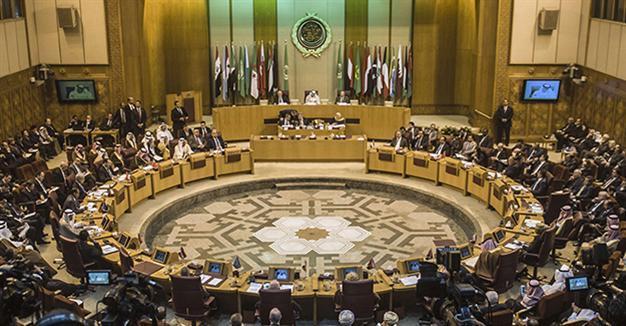Arab League considers closing office in Turkey
Emine Kart - ANKARA

A general view shows Arab foreign ministers during an emergency meeting of Arab foreign ministers in the Egyptian capital Cairo on January 10, 2016. AFP Photo
The Arab League’s representative in Ankara has confirmed that the body has been mulling whether to close its office in the Turkish capital, along with seven other representative offices around the world.
The foreign ministers of Arab League states have been set to review a committee-level decision that was made in Cairo on March 8 to close the offices for “financial and administrative purposes” and make a final decision, Ambassador Mohamed El Fatah Naciri, the head of the mission of the League of Arab States (AL) in Ankara, told the Hürriyet Daily News on March 10.
Naciri said the decision had yet to be reviewed at the ministerial meeting scheduled to be held in Cairo on the afternoon on March 10, adding that he did not expect the foreign ministers to approve the committee-level decision given the “huge political consequences” of such a decision.
The ministers however had to delay review of its decision about representative offices to March 11 because of its hectic agenda. During the March 10 session, the foreign ministers elected Ahmed Abul Gheit, who served as Egypt's last foreign minister under Hosni Mubarak until the longtime autocrat's overthrow in 2011, as the body’s incoming secretary-general.
“The committee decision on March 8 was made as they were trying to look at just financial and administrative purposes, so it is not decided yet. Now if such a decision is approved, I think it will be a political decision because of its consequences. Such a decision would have a really huge impact, and it is not only Turkey; we are also talking about other missions,” Naciri said.
“If it was only about closing the Ankara office, it would be assumed that there is something wrong with Turkey. No, it should not be explained politically. This was financial and administrative,” he said while admitting that a possible approval by the foreign ministers would have a “political meaning and consequences.”
The committee which made the decision on March 8 is composed of the permanent ambassadors of the 22-member Arab League at the headquarters in Cairo. The committee was designed by the Council of Foreign Ministers in September 2015 in order to review the performance of its missions abroad with a view to restructuring the Arab League.
In addition to the office in Turkey, the committee also proposed closing down representative offices in Berlin, Brasilia, Buenos Aires, Pretoria, Madrid, New Delhi and Floriana, Malta.
Naciri praised both the “Turkish government’s and Turkish people’s” efforts to host almost 3 million Arabs fleeing from the Syrian conflict, as well as Ankara’s stance regarding the Palestinian-Israeli dispute.
“We have to recognize all of these efforts. Given all of these factors, I don’t think that there will be a closure of the mission,” he said.
The AL mission in Ankara was inaugurated in January 2010. In return, the Turkish Embassy in Cairo has been accredited to the AL since April 2010. Yet, since November 2013, when Egypt expelled Turkey’s ambassador to Cairo, declaring him persona non grata amid tension between the two countries, Turkey has not appointed a new ambassador to Cairo.
Relations between Ankara and the AL have been particularly tense since the foreign ministers of the AL condemned Turkey’s military presence in Iraq and called on Turkey to withdraw its troops from the country in late December 2015.
In an interview with Qatar-based news broadcaster Al Jazeera late in February, Turkish Prime Minister Ahmet Davutoğlu touched upon the controversy over Bashiqa, a camp in northern Iraq which recently became a source of tension between Ankara and Baghdad when the Iraqi government asked Turkey to withdraw 150 troops it had deployed in the region late last year in order to train an Iraqi militia to fight the Islamic State of Iraq and the Levant (ISIL).
“We sent military trainers and some troops to defend them in order to liberate Mosul. We sent them to Bashiqa and the Arab League has condemned Turkey,” Davutoğlu said, referring to the Arab League decision to condemn Turkey’s deployment of troops as an “assault” on Iraqi sovereignty on Dec. 24, 2015.
